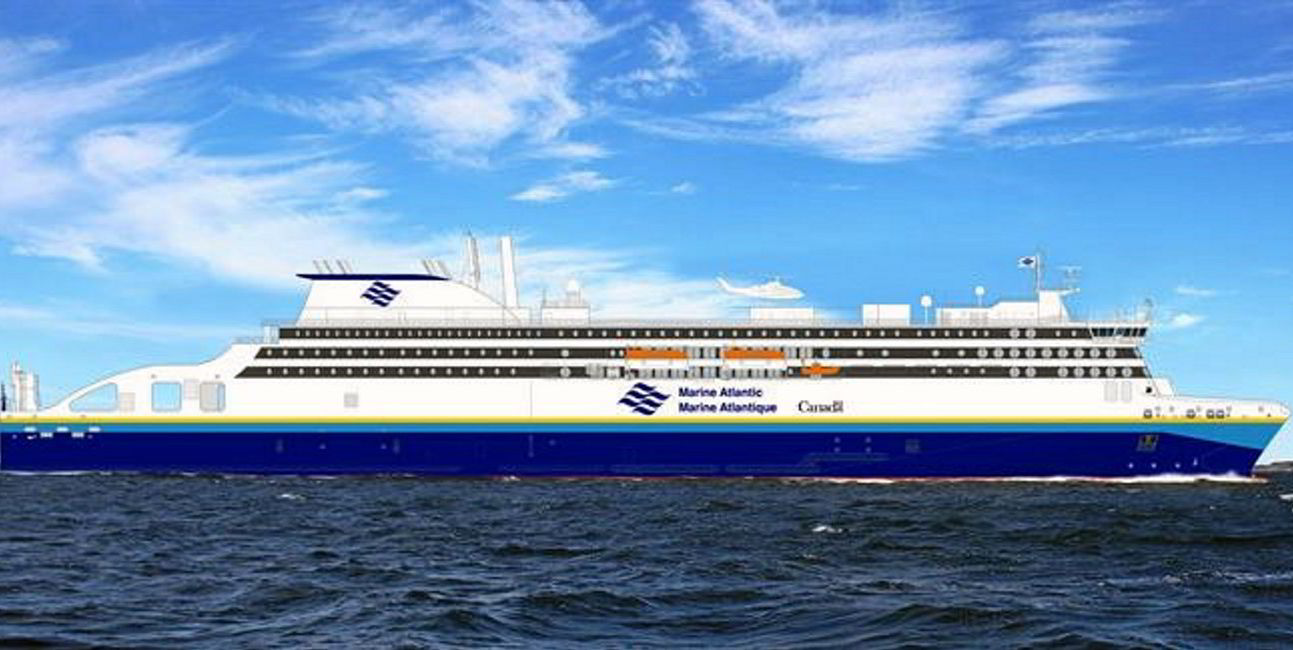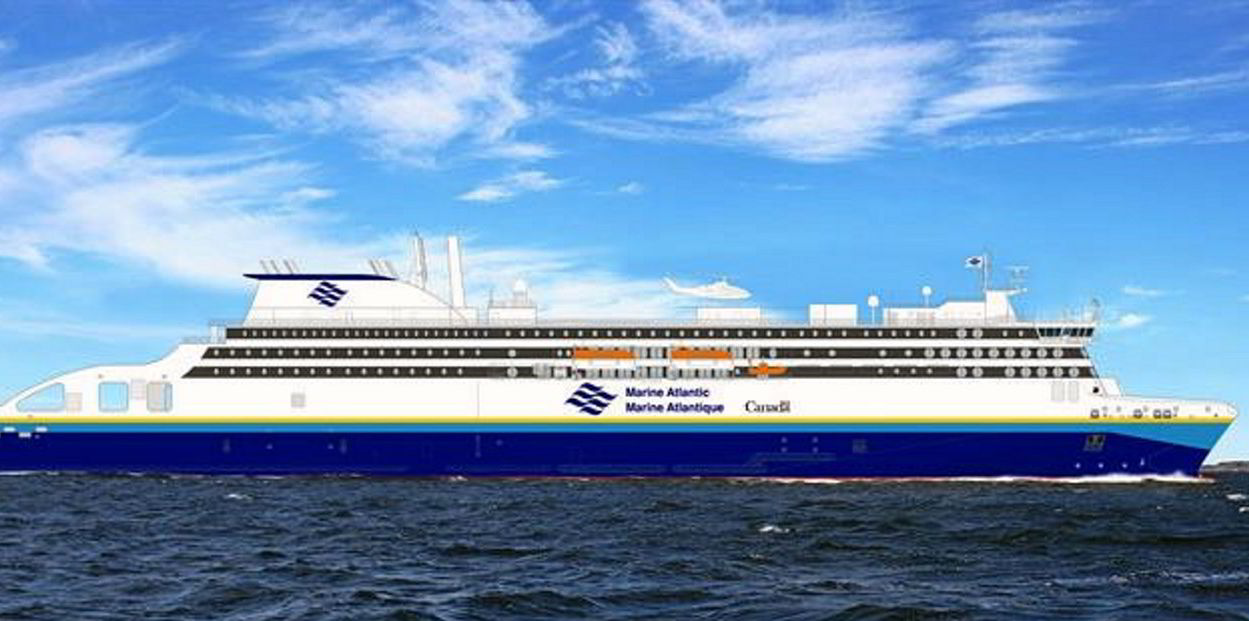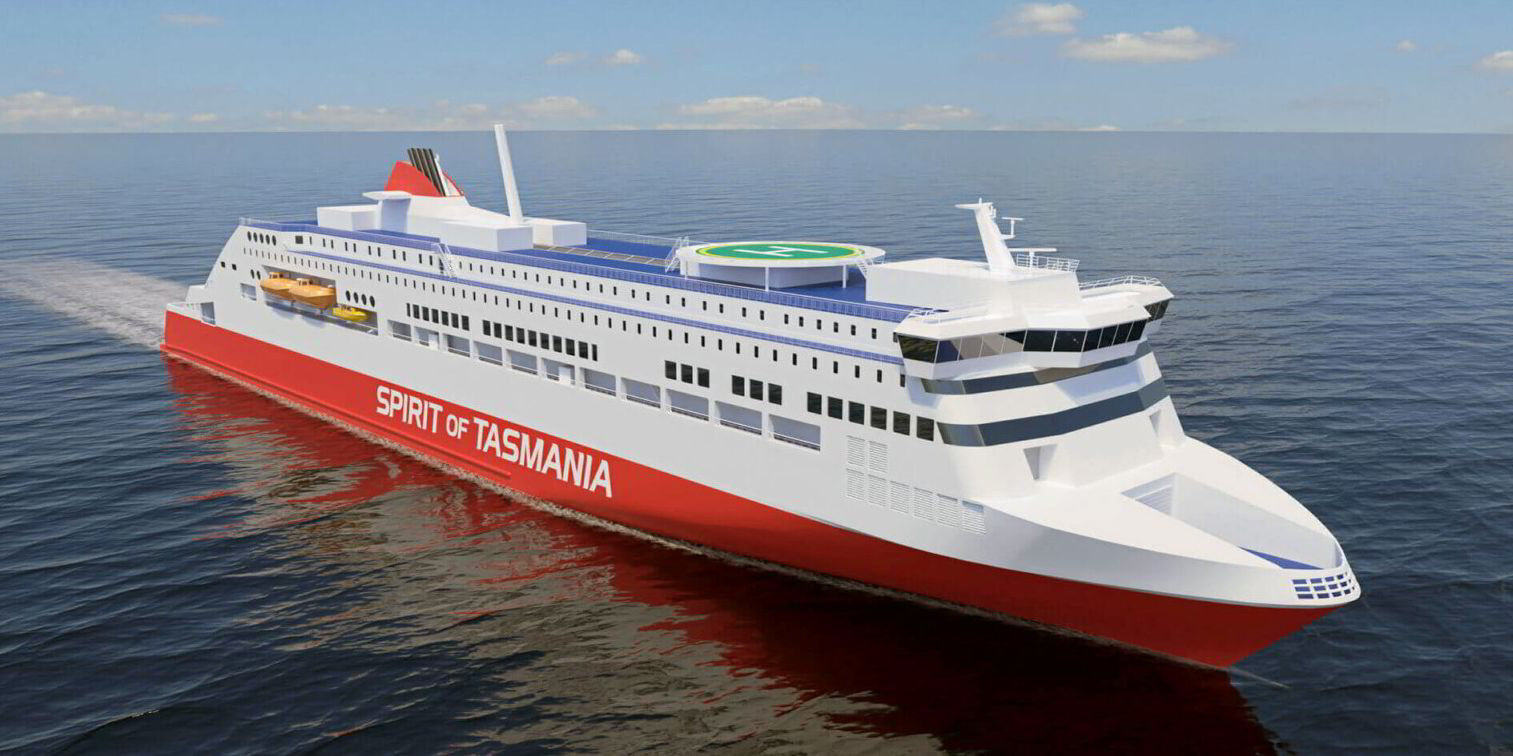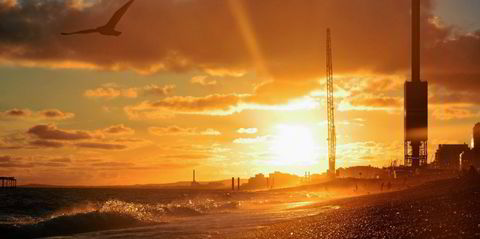Canada’s ongoing political spat with China is threatening to scupper a recently signed deal between state ferry operator Marine Atlantic and Stena RoRo for the charter of a Chinese-built ropax newbuilding.
The deal, which would see Stena RoRo build a 2,571-lane-metre E-Flexexer LNG dual-fuel ropax with accommodation for 1,100 passengers at China Merchants Jinling Shipyard and charter it to Marine Atlantic for five years with a purchase option at the end, has become a thorny political issue as Canada heads into a federal election.
Canadian opposition parties have raised strong objections to the deal, questioning how, when the country’s parliament has declared that China has committed genocide against its Muslim Uyghur minority, it has approved a contract involving building a ship at a Chinese state-owned shipyard.
In addition, the federal government has accused Beijing of “hostage diplomacy” in jailing two Canadian citizens on what it claims are trumped-up charges of spying in retaliation for Canada’s holding of Meng Wanzhou, a senior Huawei executive, at the request of US authorities who want to extradite her on contravening US sanctions against Iran.
Leaders of the main opposition Conservative party described the Stena RoRo deal as unacceptable, and said they would cancel it immediately if elected to power on 20 September.
Canadian Prime Minister Justin Trudeau has attempted to distance his Liberal government from the deal, saying that he was “troubled” by it.
Although Trudeau added that his goal was for federal government purchasing to “align with our values” and he would look into the matter, he has not given any indication that the deal could potentially be cancelled.
Marine Atlantic reports to the Canadian Parliament through transport minister Omar Alghabra who told local media via a spokesperson that he had no part in awarding the contract.
'Political psychosis'

Ferry insiders told TradeWinds that it was highly unlikely that the Canadian government was unaware that the ferry would be built in China given that the deal went through an extensive vetting process that the government had to sign off on.
“This is clearly being turned into an election issue and will probably blow over and be quietly forgotten once the election is over,” said one observer.
Neither Marine Atlantic nor Stena Roro have commented on the controversy being raised. Cancelling the deal would result in costly penalties.
Another ferry industry source said the current situation highlighted the “political psychosis” that plagues vessel procurement deals involving state-owned shipping companies.
Australian ferry operator TT-Line’s plan to build two LNG dual-fuelled ropaxes in Finland was delayed by over a year after as local politicians pressured the Tasmanian government to investigate the possibility of building the ships at an Australian shipyard.
TT-line’s contract for the pair at Rauma Marine Constructions, first signed in February 2020, was finally confirmed in April after a detailed study revealed that building the ships in Australia would be risky because none of the country’s shipyards had experience building large ropaxes.
Problems involving building at domestic yards are also plaguing the Scottish government's ferry company Caledonian MacBrayne.






